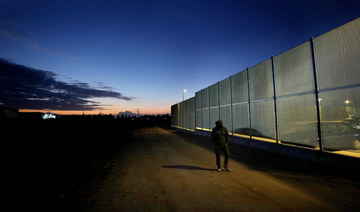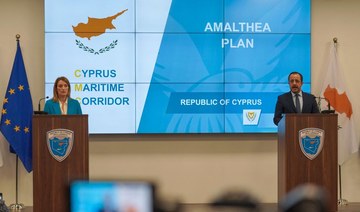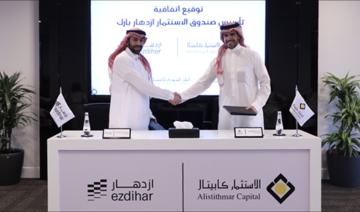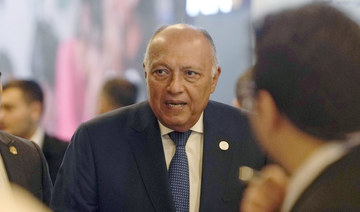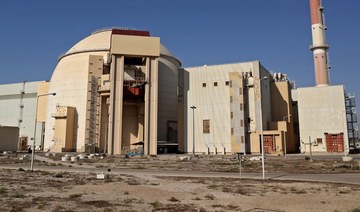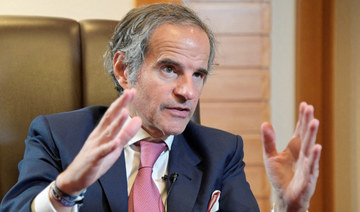BEIRUT: The US Treasury Department on Tuesday imposed new sanctions on seven Lebanese linked to the militant Iran-backed Hezbollah group and its financial arm.
The measures are the latest against Hezbollah, which Washington considers a terrorist group and has targeted with penalties for years.
The development comes as Lebanon is experiencing the worst economic and financial crisis in its modern history, including a loss of trust in the country’s once booming banking sector.
The Treasury said six of the seven sanctioned were the group’s “shadow bankers,” who used the cover of personal accounts at certain Lebanese banks to evade sanctions against Hezbollah’s financial arm. They transferred approximately $500 million over the past decade, it said.
The seventh sanctioned person, Ibrahim Daher, is one of Hezbollah’s chief financial executives who oversees the group’s overall budget, including the funding for its operations.
The Treasury said Al-Qard Al-Hasan — Hezbollah’s financial arm which the US has sanctioned since 2007 — has taken a more prominent role over the years. Founded since 1982 and registered as a charity in Lebanon, the association is used by Hezbollah to gain access to the international financial system, the Treasury said.
While the alleged charity “purports to serve the Lebanese people, in practice it illicitly moves funds through shell accounts and facilitators,” the Treasury said. “By hoarding hard currency that is desperately needed by the Lebanese economy, (it) allows (Hezbollah) to build its own support base and compromise the stability of the Lebanese state.”
Al-Qard Al-Hasan, considered Lebanon’s largest non-banking financial institution, stepped in amid the latest economic crisis to provide a vital lifeline for many. It has seen a significant increase in clients.
Hezbollah’s leader, Hassan Nasrallah, recently said the association has provided $3.7 billion in loans to some 1.8 million people since its founding.
Hezbollah “continues to abuse the Lebanese financial sector and drain Lebanon’s financial resources at an already dire time,” said Andrea Gacki, director of the Treasury’s office of foreign assets control.
“Such actions demonstrate (Hezbollah’s) disregard for financial stability, transparency, or accountability in Lebanon,” she added.
The Treasury said Daher leads Hezbollah’s Central Finance Unit, overseeing its income, budget and coordinating payments of its members while the other six participated in shadow banking activities on behalf of Hezbollah, maintaining joint bank accounts in Lebanese banks that allowed for transfer of money within the formal financial system.
US Treasury sanctions 7 Lebanese tied to Hezbollah finances
https://arab.news/wnh33
US Treasury sanctions 7 Lebanese tied to Hezbollah finances
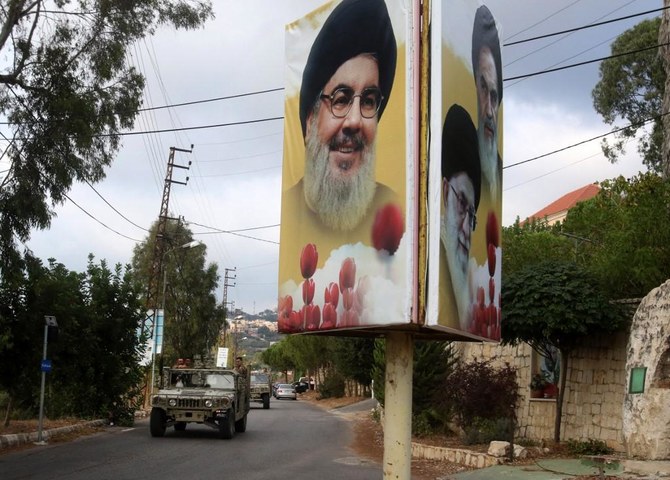
- The development comes as Lebanon is experiencing the worst economic and financial crisis in its modern history
- The Treasury said six of the seven sanctioned were the group’s “shadow bankers”
Israeli offensive on Rafah is bad idea, French foreign minister tells PM Netanyahu

JERUSALEM: An Israeli offensive in Rafah is a bad idea and would not resolve anything in the country’s fight against Hamas, France’s foreign minister told Israeli Prime Minister Benjamin Netanyahu on Tuesday, according to a French diplomatic source.
“It is a bad idea to do it. There are too many uncertainties over the humanitarian issues,” Stephane Sejourne told Netanyahu during a meeting at the prime minister’s office in Jerusalem, the source with direct knowledge of the conversation said.
EU’s von der Leyen to unveil aid for Lebanon to stop refugee flows, says Cyprus
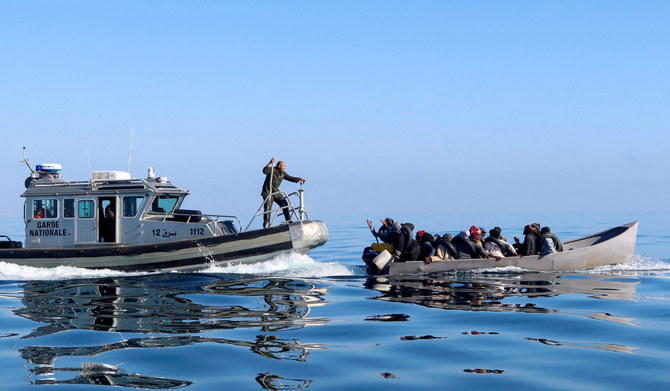
- Discussions would focus on challenges Lebanon presently faces and stability reforms it needs
- Nicosia has lobbied the bloc for months to extend aid to Lebanon similar to deals the EU has with Turkiye, Tunisia, and more recently, Egypt
NICOSIA: The European Union will offer economic aid for Lebanon when the head of the bloc’s executive and the Cypriot president jointly visit Beirut on Thursday, a Cypriot official said on Tuesday.
EU member Cyprus has grown increasingly concerned at a sharp increase in the number of Syrian refugees making their way to the Mediterranean island. Lebanon, a mere 100 miles (185 km) away from Cyprus, hosts hundreds of thousands of Syrian refugees.
“The President of the European Commission will present an economic aid package for Lebanon,” Cypriot government spokesperson Konstantinos Letymbiotis said in a statement.
President Ursula von der Leyen, due in Cyprus on Wednesday, would jointly travel to Beirut with the Cypriot President, Nikos Christodoulides on Thursday morning.
Discussions would focus on challenges Lebanon presently faces and stability reforms it needs, Letymbiotis said.
Nicosia has lobbied the bloc for months to extend aid to Lebanon similar to deals the EU has with Turkiye, Tunisia, and more recently, Egypt.
“The implementation of this (package) was at the initiative of President Christodoulides and the Republic of Cyprus and is practical proof of the active role the EU can play in our region,” Letymbiotis said.
Lebanon, in the throes of an economic meltdown since 2019, has not enacted most of the reforms required by the International Monetary Fund to get access to its funding, but has asked friendly countries to continue backing it.
Some Lebanese officials have used the growing presence of migrants and refugees in the country as a bargaining chip, threatening to stop intercepting migrant boats destined for Europe unless Lebanon received more economic support.
Cyprus took in more than 2,000 Syrians who arrived by sea in the first quarter of this year, compared to just 78 in the same period of last year. Earlier this month, it took the unprecedented step of dispatching patrol vessels to international waters off Lebanon to discourage crossings and said it was suspending the processing of asylum applications from Syrians.
Major Developers unveils $272 million luxury residential project
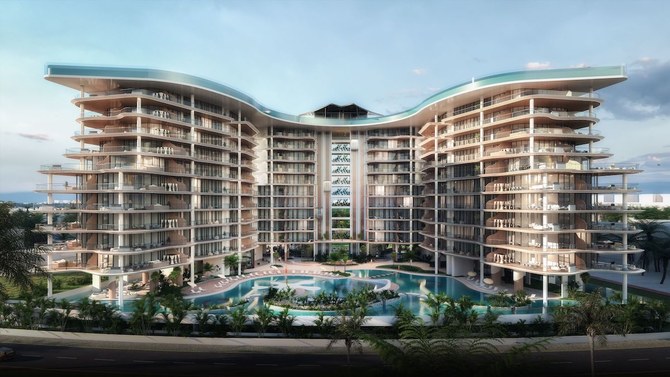
- Manta Bay will mark the company’s first project in Ras Al Khaimah
DUBAI: UAE-based real estate company Major Developers has announced an AED1 billion ($272 million) luxury residential project in Ras Al-Khaimah, Emirates News Agency reported on Tuesday.
Manta Bay will mark the company’s first project in the emirate and represents a major investment in the region’s luxury market.
The company says the development, on the shores of Al-Marjan Island, is inspired by Manta Bay in Indonesia and will be the epitome of exclusivity. It is set to break ground by mid-2024.
“We anticipate that Ras Al-Khaimah will capture a substantial portion of the UAE’s real estate market, supported by its strategic location, extensive infrastructure enhancements and increasing demand,” said Naren Vish, Major Developers’ chief marketing officer, during a press conference at the JW Marriott Hotel Marina in Dubai.
Egyptian FM repeats call for two-state solution
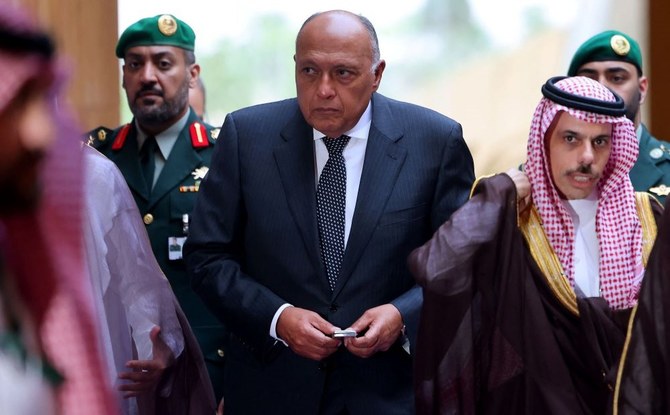
- Sameh Shoukry took part in a ministerial coordination meeting involving Arab and European countries
- Meeting, which discussed recognition of a Palestinian state, was held on the sidelines of the two-day WEF special meeting in Riyadh
CAIRO: Egypt’s foreign minister has repeated his call for a two-state solution to the Palestinian issue.
Sameh Shoukry on Monday took part in a ministerial coordination meeting involving Arab and European countries.
The meeting, which discussed recognition of a Palestinian state, was held on the sidelines of the two-day World Economic Forum special meeting in Riyadh.
Shoukry called on the international community to pressure Israel into ending its occupation of the Palestinian territories, and to support the legitimate and inalienable rights of Palestinians, said Ahmed Abu Zeid, the ministry’s spokesman.
Given the violence in Gaza and tensions in the West Bank, international parties must “assume their legal and human responsibilities to find a serious political horizon to establish a two-state solution and bring just and comprehensive peace to the region,” Shoukry added.
The foreign minister described the two-state solution as the “only path” toward peace between Palestinians and Israelis, as well as stability and coexistence among the peoples of the region.
IAEA chief Grossi to visit Iran May 6-8, Mehr says
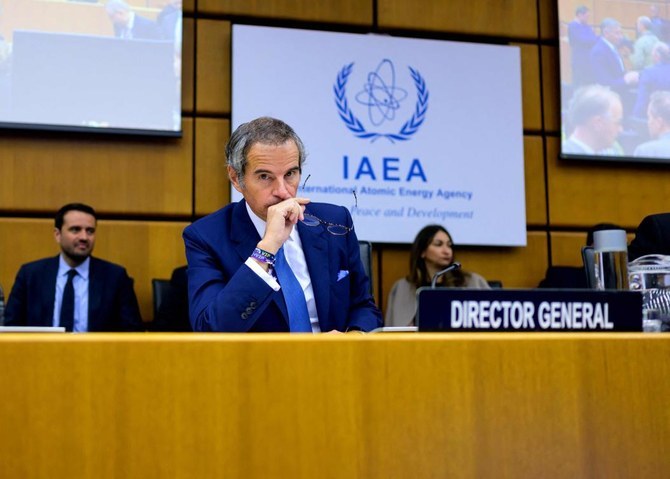
- Grossi will meet Iranian officials in Tehran before participating in the International Conference of Nuclear Sciences and Technologies held in Isfahan
- Enrichment to 60 percent brings uranium close to weapons grade
DUBAI: International Atomic Energy Agency chief Rafael Grossi is scheduled to visit Iran to take part in a nuclear conference from May 6-8 and meet Iranian officials, Iran’s Mehr news agency said on Tuesday.
“Grossi will meet Iranian officials in Tehran before participating in the International Conference of Nuclear Sciences and Technologies held in Isfahan,” the agency reported.
The IAEA chief said in February that he was planning a visit to Tehran to tackle a “drifting apart” in relations between the agency and the Islamic Republic.
Grossi said the same month that while the pace of uranium enrichment by Iran had slowed slightly since the end of last year, Iran was still enriching at an elevated rate of around 7 kg of uranium per month to 60 percent purity.
Enrichment to 60 percent brings uranium close to weapons grade, and is not necessary for commercial use in nuclear power production. Iran denies seeking nuclear weapons but no other state has enriched to that level without producing them.
Under a defunct 2015 agreement with world powers, Iran can enrich uranium only to 3.67 percent. After then-President Donald Trump pulled the United States out of that deal in 2018 and re-imposed sanctions, Iran moved well beyond the deal’s nuclear restrictions.
The IAEA said the 2015 nuclear deal was “all but disintegrated.”



